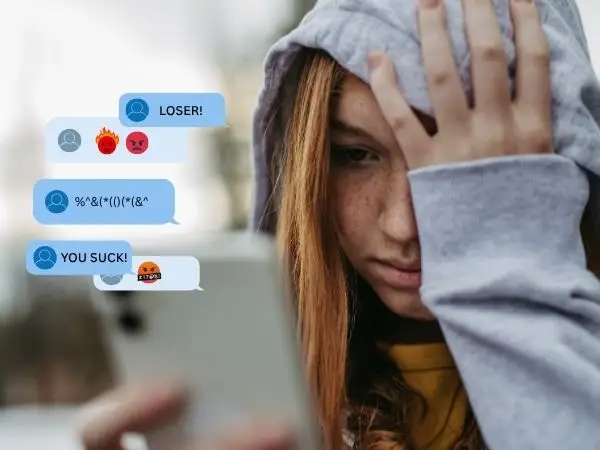Understanding the Legal Framework
In South Africa, issues related to children are governed by the Children’s Act 38 of 2005, which places the best interests of the child above all else. Whether a couple is married, unmarried, or in a civil union, the Act ensures that children are protected, their needs prioritised, and both parents are encouraged to play an active role in their upbringing.
The key terms you’ll encounter in South African family law are:
- Parental Responsibilities and Rights
- Care
- Contact
- Guardianship
- Custody (an outdated term still commonly used)
Let’s look at how custody and primary care fit into this framework.
What Is Custody?
Legally speaking, the term “custody” has largely been replaced in the Children’s Act with more specific terms such as care, contact, and guardianship. However, many South Africans still use “custody” in everyday language, which can lead to confusion.
Traditionally, custody meant the right to make day-to-day decisions about the child’s life, including education, medical treatment, and general welfare. In modern legal terms:
- Care refers to providing a child with a suitable home, safeguarding their wellbeing, and ensuring their educational and emotional needs are met.
- Contact refers to maintaining a personal relationship with the child, such as visitation rights.
- Guardianship involves major decisions such as consenting to a child’s marriage, applying for a passport, or selling property on behalf of a minor.
Important: While courts and legal professionals now use “care” instead of “custody,” many people still refer to sole or joint custody in informal conversations.
What Is Primary Care?
Primary care refers to the parent with whom the child lives most of the time and who provides for their daily needs. This parent is often called the primary caregiver.
While both parents may have joint parental responsibilities, only one will usually be granted primary care, especially when parents live separately. This arrangement ensures stability and routine for the child.
Primary care includes responsibilities such as:
- Waking the child up for school
- Preparing meals
- Taking them to the doctor
- Assisting with homework
- Providing emotional support
This parent typically receives child maintenance and handles the child’s day-to-day schedule.
Joint vs. Sole Parental Responsibilities
Parental responsibilities and rights can be shared (joint) or granted to one parent (sole), depending on the circumstances and the child’s best interests.
Joint Responsibilities
- Both parents are involved in care and decision-making.
- Requires good communication and cooperation.
- Often includes shared holidays and alternating weekends.
Sole Responsibilities
- One parent is granted exclusive rights to make decisions.
- May be necessary in cases of abuse, neglect, or absence.
- The other parent may still have contact rights, supervised or unsupervised.
How Courts Decide Who Gets Primary Care
The court’s primary concern is the best interests of the child. In line with this, the court will consider factors such as:
- The emotional bond between the child and each parent
- Stability of each parent’s living environment
- Work schedules and availability
- Each parent’s involvement in the child’s daily routine
- The child’s own wishes, if age-appropriate
The court may also consult with a family advocate, psychologist, or social worker to conduct assessments and provide reports.
Common Misconceptions
“The mother always gets primary care.”
Not true. South African law is gender-neutral. Courts assess which parent is better able to provide care, regardless of gender.
“Custody means ownership.”
Incorrect. Parental responsibilities are not about control or ownership, but about caring for the child and protecting their rights.
“If I have contact, I have no say.”
Also incorrect. Even if one parent has primary care, the other may still share guardianship and important decision-making rights.
Real-Life Example
Scenario: Sipho and Thandi are getting divorced. They have a 6-year-old daughter, Amari.
- Both parents have full parental rights and responsibilities.
- After a court assessment, Thandi is granted primary care because she works from home and has been the child’s main caregiver.
- Sipho is granted contact, including alternate weekends and half of school holidays.
- Both parents retain joint guardianship and must agree on major decisions.
This arrangement ensures Amari has stability with her primary caregiver while maintaining a relationship with both parents.
Stats: What the Numbers Say
According to Statistics South Africa (2022):
- Over 44% of divorces involved children under 18.
- In 60% of cases, mothers were granted primary care.
- Less than 10% of divorces resulted in shared residential care.
- Courts are increasingly encouraging joint responsibilities when possible.
What You Need to Do
If you’re going through a separation or divorce, and children are involved, here are the steps you should consider:
- Get Legal Advice: Speak to a family law attorney to understand your rights.
- Mediation: Attempt to reach a parenting plan through mediation.
- Parenting Plan: Draft a detailed agreement covering care, contact, holidays, and finances.
- Family Advocate: Have your parenting plan endorsed by the Family Advocate.
- Court Order: If you can’t agree, the matter will be decided by a judge.
Frequently Asked Questions (FAQs)
Q1: Can primary care be changed later?
A: Yes, if circumstances change or it’s no longer in the child’s best interest, the court can review and modify the arrangement.
Q2: Is it possible for both parents to have equal care?
A: Yes, this is called shared or joint primary residence, but it requires a high level of cooperation.
Q3: Can a parent be denied contact?
A: Only in extreme cases involving abuse, neglect, or risk to the child. Even then, supervised contact may be allowed.
Q4: Do I need a court order to have primary care?
A: Yes, for legal clarity and enforceability, primary care should be confirmed by a court order.
Understanding the difference between custody and primary care is essential for any parent navigating separation or divorce in South Africa. While the legal language may have evolved, the central concern remains the same: what is in the best interests of the child.
Whether you’re a mother or a father, full-time worker or stay-at-home parent, your role matters. Knowing your rights and responsibilities helps ensure your child grows up with the love, stability, and support they need.
Need guidance on your parenting rights or responsibilities? Our team is here to support you every step of the way — get in touch via our contact page or give us a call today.





